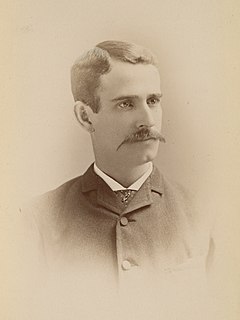A Quote by Ann Landers
Remember, it takes two to make an argument. The one who is wrong is the one who will be doing most of the talking.
Related Quotes
As a child, I heard in my home doctors and ambulance men say, 'Mrs. Stewart, you must've done something to provoke him.' 'Mrs. Stewart, it takes two to make an argument.' Wrong. Wrong! My mother did nothing to provoke that - and even if she had, violence is never ever a choice that a man should make. Ever.
Ultimately, the current argument is "not having net neutrality will hurt innovation," and you can make that argument, but I would rather make the public good argument, which is not just about innovation or nurturing new companies that will add to the nation's GDP, it's actually about creating a democratic public sphere.
These are the things which might conceivably and truly make men forgive their enemies. We can only turn hate to love by understanding what are the things that men have loved; nor is it necessary to ask men to hate their loves in order to love one another. Just as two grocers are most likely to be reconciled when they remember for a moment that they are two fathers, so two nationals are most likely to be reconciled when they remember (if only for a moment) that they are two patriots.
Before the show, there's about two or two and a half hours of meet and greets with radio stations, promoters, people who I need to see and thank and talk to to make sure they remember me. And then, I get - out of all that day of talking and smiling and shaking hands and getting photos, I get to sing for two hours.
They say that 'history is an argument without end.' In Thompson's skillful hands, this momentous argument between two old friends on the most critical issue of the last century is thus history at its best. Thompson's judicious and delicious depiction of Nitze and Kennan will fascinate anyone who cares about the Cold War or the ways that human beings shape the future.
Neoliberalism is vulnerable. When it comes to talking about social provisions, the only argument they have is the argument of barbarians: that social provisions make people dependent, and dependency is an evil, and people have to pick themselves up by their bootstraps. And that is such bullshit that it boggles my mind.
There are two kinds of comprehensive doctrines, religious and secular. Those of religious faith will say I give a veiled argument for secularism, and the latter will say I give a veiled argument for religion. I deny both. Each side presumes the basic ideas of constitutional democracy, so my suggestion is that we can make our political arguments in terms of public reason. Then we stand on common ground. That's how we can understand each other and cooperate.

































